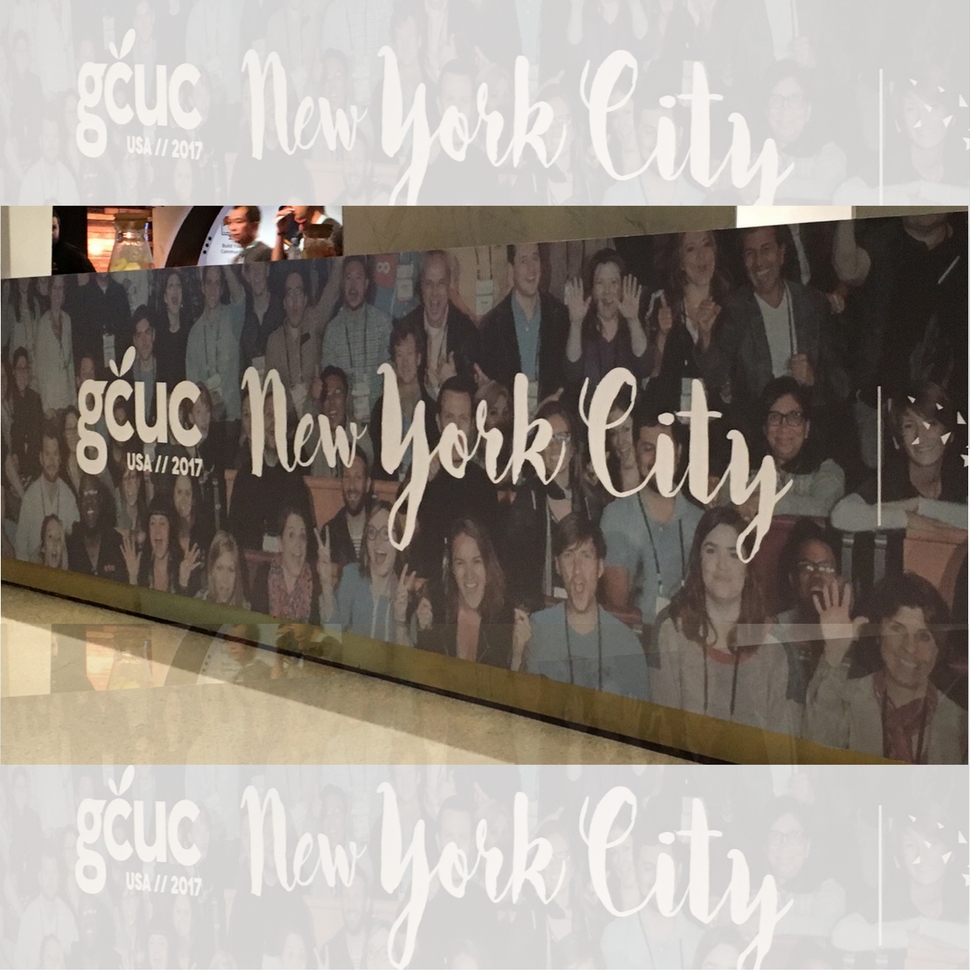Spending time with coworking space operators and professionals is the best way to go from being in the weeds about the day-to-day details of running a space or business to getting a bird’s eye view of the global coworking movement. Gathering in the same space reminds us where the movement has been and forges new pathways for where it’s going.
The Global Coworking Unconference Conference (GCUC USA), which took place in New York City this past weekend dug deep into the heart of coworking and the extraordinary power it has to connect people, accelerate purpose and careers, and transform communities.
The event featured presentations by Greg Lindsay from the New Cities Foundation, Casper ter Kuile and Angie Thurston from Harvard Divinity School, Amrit Dhir from Google for Entrepreneurs and more.
It also had all-star panels of shared workspace pioneers and visionaries, talks by industry leaders, and a day of unconference sessions, where participants decided on the topics to be discussed.

Here are 14 takeaways from GCUC USA 2017.
1. Collaborations between cities and coworking spaces have remarkable opportunities and potential to revitalize cities and towns of all sizes.
2. Reimagining unused or underutilized local buildings as coworking spaces can strengthen local economies and breathe new life into struggling areas. Two examples of this are 312 Main in Vancouver, Canada, which has transformed a police station and jail into a massive innovation center, and American Underground in Durham, North Carolina, which transformed the basement of the American Tobacco factory into a coworking space.
3. Coworking goes far beyond providing workspace. One in four Americans doesn’t have anyone to talk to, and that includes family members. Coworking provides people a network of professional and personal support.
4. Religious institutions, at large, face an existential crisis as decreasing numbers of people turn to religion to satisfy their spiritual needs. Others struggle to create genuine community among members of the congregation. Some of these institutions are looking to coworking—in particular how spaces are building tight networks of mutual support and friendship in cities and towns across the globe—as models for how they might evolve and address challenges.
5. There seems to be a merging of the shared office industry, at large. While last year’s GCUC USA event felt like a head-on collision between coworking and commercial real estate development—with the latter getting the better end of the bargain—this year’s event felt like the industry has taken a collective step forward.
Rather than being two polarized entities, it’s a continuum of spaces, business models and communities ranging from small but mighty spaces of fewer than 50 members, all the way up to scaled corporate brands.
6. There’s growing demand for child care in coworking spaces, as well as women-friendly features, such as lactation rooms, and gender inclusive design, such as gender neutral restrooms. A number of space operators are working these features into their design and strategy.
7. The niching of the industry continues. There are now coworking spaces for artists, knitters, makers, writers, architects, builders, musicians, wellness professionals, students, and much more.
8. Coworking spaces don’t necessarily need to be “tech hubs” if that’s not what the local community wants or needs. Collaborative spaces have to be relevant to the communities they serve. The idea is to be part of the solution, whatever that looks like for your community.

9. Suburban office parks facing low occupancy rates can—and have been—transformed into coworking spaces to serve suburban professionals.
10. Diversity is a hot topic. Among the areas covered at the event, both formally and informally, were the fact that diverse companies are strong companies; niche spaces are important and empowering; companies need to demand diversity; and the best companies are often the most diverse.
11. The economic impact coworking provides can be game-changing for small cities and towns.
12. Creating regional alliances of coworking spaces is a powerful way to raise awareness of coworking in your community, create a network of support among space operators and establish a culture of collaboration in your local coworking ecosystem.
13. Sharing the stories of what makes your space unique is a good way to differentiate your space in a growing industry. Bring those things that make your space unique to the surface, don’t hide them or downplay them.
14. One of the most-Tweeted quotes from the event was from Ryan Simonetti, cofounder of Convene, who said, “A good plan executed today is better than a great plan executed tomorrow.”
GCUC has reestablished itself as a game-changing opportunity for coworking space operators and professionals looking, not to simply create a business, but to transform the way we work, live and connect with each other. As GCUC executive producer Liz Elam put it, “We do this because we believe it is a human revolution. So go ahead and go change the world.”
If you were at GCUC and would like to share what you learned or found the most interesting, feel free to contact us or give us a shoutout on Facebook or Twitter.
*All photos taken by Cat Johnson

















